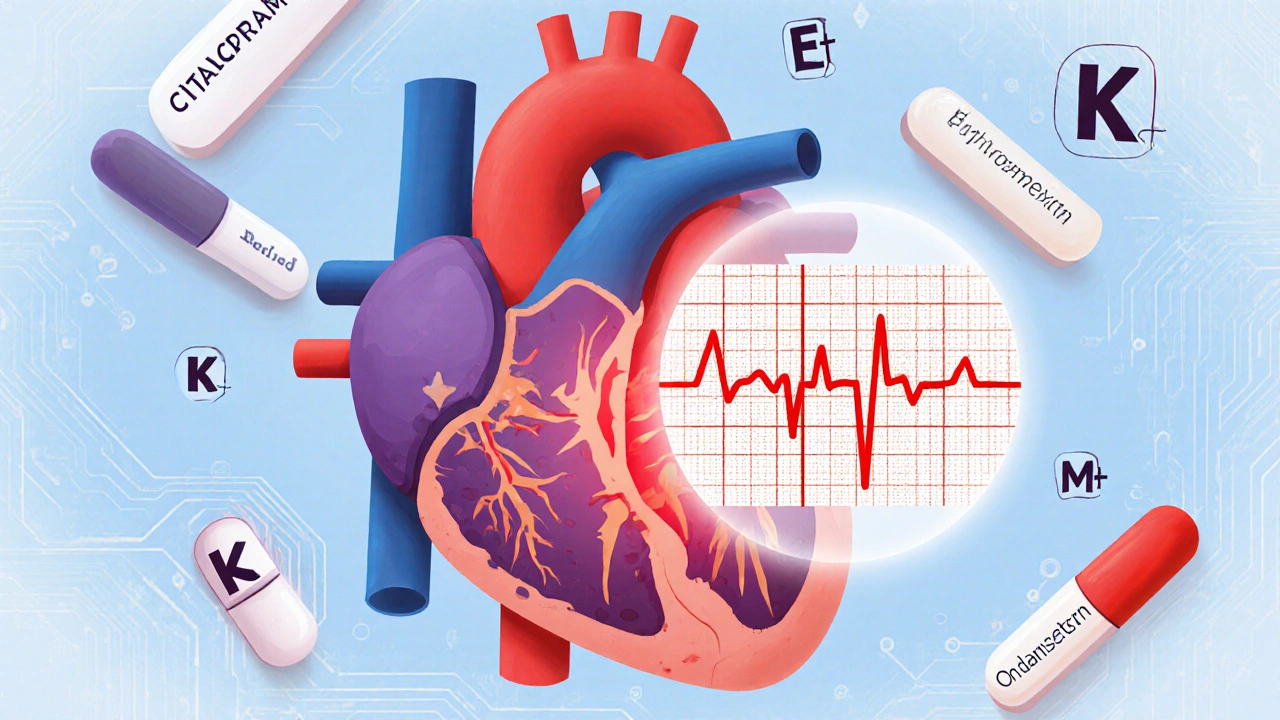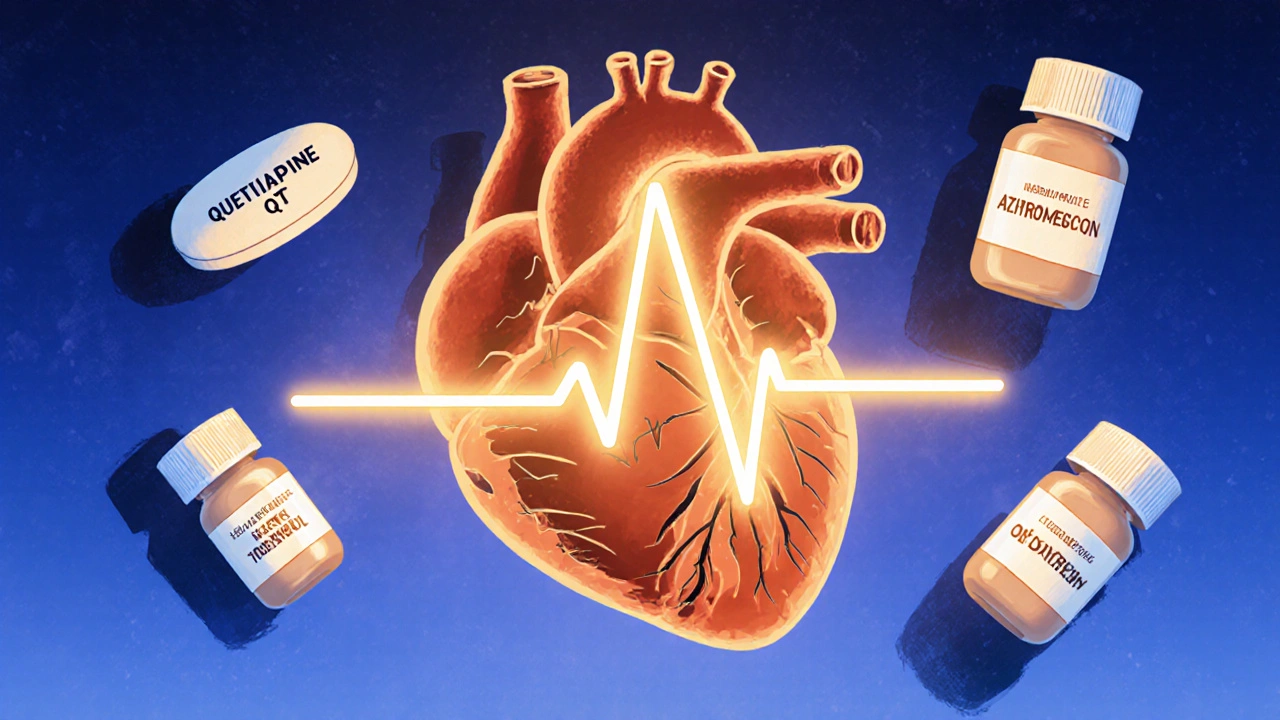QT Prolongation: Risks, Medications, and What You Need to Know
When your heart’s electrical cycle takes too long to reset, it’s called QT prolongation, a delay in the heart’s repolarization phase that can lead to dangerous irregular heartbeats. Also known as long QT syndrome, it’s not always genetic—often, it’s triggered by medications you’re already taking. This isn’t just a lab result. It’s a silent risk that can turn a routine prescription into a life-threatening event.
Many drugs—some you might not expect—can cause QT prolongation. Antibiotics, like certain macrolides and fluoroquinolones, antipsychotics, including haloperidol and ziprasidone, and even anti-nausea meds, like domperidone and ondansetron, have been linked to this issue. It’s not just about the drug itself. Your genes matter too. If you carry variants like CYP2D6, a gene that affects how your body breaks down over 25% of common drugs, you might process these meds slower, increasing your risk without knowing it. That’s why some people have bad reactions while others don’t—even on the same dose.
It’s not just about taking one risky drug. The danger spikes when you combine them. A common painkiller plus an antidepressant, or an antifungal with a heart medication—these combinations can push your QT interval past the danger line. Even things like low potassium or dehydration can make it worse. That’s why doctors check electrolytes and ECGs before and after starting certain meds. If you’ve ever been told to avoid grapefruit with your pills, this is why: it messes with liver enzymes and can turn a safe dose into a risky one.
You won’t feel QT prolongation until it’s too late. No chest pain, no dizziness—just a sudden, unexplained fainting spell or, in worst cases, cardiac arrest. That’s why it’s called a silent killer. But it’s not invisible. If you’ve had unexplained fainting, a family history of sudden death before age 50, or you’re on multiple meds, you’re in the risk group. And if you’ve ever been told your ECG showed a "long QT," don’t ignore it. Ask what meds might be causing it and what you can switch to.
The posts below cover exactly this: drugs that affect your heart rhythm, how genetics make you more vulnerable, and what alternatives exist when your current meds are risky. You’ll find clear comparisons of medications linked to QT prolongation, real-world examples of dangerous interactions, and how to talk to your doctor about safer options. No fluff. Just what you need to stay safe while still getting the treatment you need.

QT Prolongation and Sudden Cardiac Death from Medications: What You Need to Know About Risk Factors
- by Colin Edward Egan
- on 21 Nov 2025
QT prolongation from medications can lead to sudden cardiac death. Learn the key risk factors, which drugs are most dangerous, and how to protect yourself with simple checks and safer alternatives.

Antipsychotics and QT-Prolonging Drugs: What You Need to Know About Heart Risks
- by Colin Edward Egan
- on 7 Nov 2025
Combining antipsychotics with other QT-prolonging drugs can dangerously stretch the heart's electrical cycle, raising the risk of sudden cardiac events. Learn which medications are safest, who's most at risk, and how to prevent life-threatening arrhythmias.
